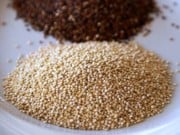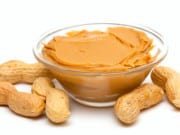A recent article from the Wall Street Journal titled, “Eating Like the Ancients: Heirloom Grains Return” discusses the trend of marketing “ancient grains.”
Many of these grains are gluten free and quite nutritious (quinoa, teff, buckwheat), but some, einkorn in particular, are being touted as safe for people with celiac, when they are not.
Einkorn is an old form of wheat. It contains gluten.
Although some researchers have posited that the gluten in this grain is different than the gluten in modern wheat, testing on actual celiac patients has shown that it still causes reactions.
We highly recommend that anyone with any immune system reaction to gluten avoid einkorn, durum, emmer, and other grains products that are essentially wheat.
Excerpt:
“The evidence isn’t there that ancient grains are any more nutritious to consume than other whole grains,” says Ms. Dubost. It isn’t true that modern breeding has reduced wheat nutrition, adds Judi Adams, president of the Wheat Foods Council, a trade group of wheat growers and flour producers. You do get more calcium from einkorn: According to the nutrition information printed on the packages, ¼ cup of Jovial einkorn berries—which must be ground before use—has 4% of the daily recommended calcium, compared with 2% from red wheat berries from Norwich, Vt.’s King Arthur Flour Co., and none in most supermarket preground flours.
In an informal taste test for this article, einkorn in baked goods had a rich flavor, much like cornbread. Baking with it can be tricky as it doesn’t absorb as much water as regular all-purpose flour and can result in a sticky dough, says Jovial’s Mrs. Bartolucci. Bread recipes must be slightly altered to work correctly, often by using less liquid. Muffins and cakes can be made without changing recipes, she adds.
–
Article Courtesy: Dr. Stephen Wangen
Image thanks to kitchenvignettes.blogspot.com







Let Us Know What You Think